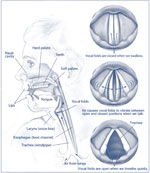
The Arc/Arch of Your Singing Voice
A question I received recently from someone looking for singing help made me think about what I call the “arc” or “arch” of your voice. It is an approach to singing that can help carry you through the day without losing the power of your voice if you learn how to adjust the way you modulate your practicing and vocalizing.
The young man who asked me for singing help has never written to me before but he has been watching and using my singing tips and affordable singing lesson videos on YouTube for a long time. I do not mention his name here to respect his privacy, but this post will answer his question because it may also help you to set your voice free in ways that can help you to prevent damage to your vocal cords.
He told me that:
- He easily vocalizes early in the morning with all sorts of “crazy sirens “(I love that)
- With his sirens and “crazy scales and trills” (I love that too) he can go up and down 4 octaves with no problems in the morning
- He can imitate an “expressive voice-actor”
I know a lot of people who would love to be able to do what he describes, so what is his problem, you might ask.
Here are his own words:
- “Sadly, this state of my voice never lasts very long. It is there for some 2 hours and after, [but] as the day progresses, singing and speaking just keeps getting harder, to the level that I sometimes in the evening can’t produce proper head voice at all, just a pushed breathy sound and my speech feels heavy as well. The interesting thing is that this happens independent of hydration, or how much I’ve been speaking or singing (voice usage) that day and where I’ve been. In fact, if I stay silent the whole day and sing only 1 minute every hour, the same thing happens and I can gradually notice myself loosing my free voice.”
Ouch! I feel his pain. How discouraging to be able to sing so freely in the morning and lose it all before the day is over.
He describes the problem as a difficulty in “achieving phonation” or getting the vocal folds to phonate.
First of all, for those of you who do not know what phonation means, here is the simple dictionary meaning: “to articulate speech sounds, especially to cause the vocal cords to vibrate in the execution of a voiced speech sound.”
As you know, I love to simplify terminology in order to give you the best possible singing help, so an even more simple way of saying it is this: to phonate means to make speech or singing sounds with your voice
In his case, he can easily feel things working for him in the morning. In other words, he is able to phonate without problems. But he told me that by evening he can only produce a tone by pushing and it feels like his cords simply are not able to close at all, as though there is something that keeps them open and stretched so that they cannot vibrate (open and close to make sounds).
He went on to say that he needs to sleep for a full night before the situation improves and that when he takes a nap in the afternoon it improves a little bit.
Without seeing or hearing him, it is more difficult to say what is precisely causing this vocal problem, but here is what I think is most likely happening.
He may be pushing too hard in the morning without realizing it
From what he wrote to me I can tell that this young man loves singing and that he wants to go to the next level with his voice. He loves to spin his voice all over the place, feeling the resonance in the bony structure of his head and loves the feeling of joy that this gives him.
With his great enthusiasm, he gives everything he has in the mornings.
By the afternoon or evening everything is gone. After sleeping his voice is okay again.
Why?
You must approach singing, vocalizing, practicing and learning with ease and pacing. Ease is the key to sustaining a healthy pair of vocal cords and pacing yourself is the key to creating vocal staying power during the day.
In fact, in order to free your voice it is essential that you learn how to work toward your singing goals with ease. If you can spin or sing up and down two to four octaves with what seems like no effort in the morning but then a few hours later you start having problems and then feel like your cords cannot open and close, something you are doing in the morning vocalization is most likely causing them to swell. That’s what happens when vocal cords swell. They feel like they will not open and close. And they swell because of forcing or pushing too hard.
This can happen even if you don’t realize you are doing it. The symptoms “tell” you the results of the way you are using your voice.
So, the answer to the problem is that you need to adjust or moderate the way you do warmups, scales, “sirens, or any type of practicing.
Here is how you can do that.
Think of Your Voice as an Arc or Arch
Visualize the way you sing as though your voice were a continuous arc or arch over which you will float or fly or move during the day.
Think of it as though the first tone in the morning is the beginning of this continuous arc/arch and the other side of the arc/arch is the end of the tone.
Now think of this arc/arch as something that you cannot cross all at one time, but rather as something that will cause you to pace yourself from the moment you get on it. To “float” over it and keep your energy levels and speed equalized and modulated, you cannot use too much energy too fast at the beginning of the arc/arch (in the morning).
Think of the entire day as the arc/arch and taking the entire day to get across it.
This is what you do when you train for athletic events or when you jog or run. You find a pace and a rhythm in your running that is neither too fast nor too slow. You want to get your heart pumping, but not too fast too quickly. You warmup but don’t sprint at first. If you are running a marathon, you find the pace that will enable you to make it to the finish line without collapsing first.
Singing is like athletics. You must learn to pace yourself.
In the mornings, begin gently doing soft humming in your middle voice on just a few notes. Don’t spin to the high or low notes right away. Give the vocal cords a chance to “warmup” just like an athlete warms up his muscles before he engages in rigorous exercises.
After a few minutes of this, begin to add a note above and a note below what you are already singing or spinning. If it feels like you are using too much energy to do this, stop and go back to humming the first few notes. Keep pacing yourself. Only add notes up or down if it is effortless. Sing more softly at first. Pay attention to what your throat feels like. Don’t let the exuberance and pure joy of singing make you neglect to pay attention to what your larynx and vocal cords are telling you.
Again, pace yourself and think of your voice as that arc/arch over which you must travel for the entire day. Don’t dash across it in the morning. The morning is only the beginning of the arc/arch.
Stay focused on feeling the ease in singing
This is part of the singing mindset approach. You must visualize and think about what you are doing before you do it. You must master the sense and feeling of ease by preparing your mindset ahead of time.
Here is a mindset you can use:
“My voice is made to last me throughout the entire day. I can pace my energy, my breath, my volume and pitch by letting the morning warmup be like the beginning of the arc/arch or the beginning of the race.”
Do this, and if you still have problems with your voice during the day then you may be doing something else that is forcing the cords too hard and causing the swelling. If nothing helps, it might be time to see a throat doctor who specializes in vocal problems.




 Do you get a hoarse voice from singing?
Do you get a hoarse voice from singing?